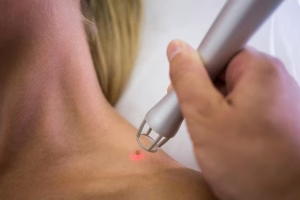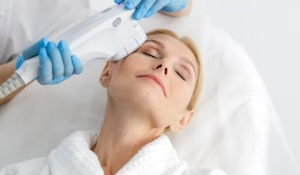April 23, 2024
Hair Loss Causes & Solutions – Da Vinci Clinic
It begins with a gradual onset, characterized by increased hair shedding and a transition from large, thick, pigmented terminal hairs to thinner, shorter, nonpigmented vellus hairs. Men typically experience a recession of the frontal hairline and thinning in the temporal areas, while women often experience diffuse hair loss over the crown without developing pronounced bald spots.
Hormonal changes, such as those involving dihydrotestosterone (DHT), menopause, and thyroid issues, can also cause hair loss. Androgens, including testosterone and dihydrotestosterone (DHT), play a crucial role in regulating hair growth. In androgenetic alopecia, DHT is believed to be the main culprit behind hair follicle damage.
Newsletter
Be the first to know about new treatments, events, and articles.




